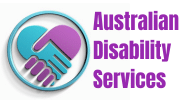What Are The Different Types Of Speech Therapy?

Have you ever felt frustrated because you struggle to speak clearly, express yourself fluently, or swallow safely? If so, you’re not alone. Speech difficulties can impact people of all ages and backgrounds. Thankfully, the world of speech therapy offers a variety of solutions! This article will explore the different types of speech therapy available and how they can help you improve your communication skills and overcome challenges.
How can speech therapy help you?
Speech therapy, also known as speech-language pathology, is a form of therapy provided by qualified professionals called speech therapists or speech-language pathologists (SLPs). These specialists assess and treat a wide range of communication difficulties.
Depending on your specific needs, speech therapy can help you:
- Pronounce sounds correctly: If you struggle with certain sounds or have difficulty forming words clearly, articulation therapy can help you develop the necessary muscle control and coordination.
- Speak fluently and smoothly: Stuttering and cluttering can be frustrating experiences. Fluency therapy equips you with strategies to manage these conditions and speak confidently.
- Understand and use spoken language effectively: Language therapy can address challenges in understanding what others say or difficulty expressing your thoughts and ideas verbally. This therapy can improve your vocabulary, grammar, and overall language skills.

- Use your voice clearly and comfortably: Do you experience hoarseness, vocal strain, or difficulty projecting your voice? Voice therapy can help you strengthen your vocal cords, improve your vocal hygiene, and achieve optimal voice use.
- Swallow safely and efficiently: Swallowing difficulties can be a concern for people of all ages. Swallowing therapy can help you develop safe and efficient swallowing techniques to prevent aspiration (inhaling food or liquids into the lungs).
What are the main types of speech therapy?
There are several different types of speech therapy, each focusing on a specific area of communication. Here’s a closer look at some of the most common types:
- Articulation therapy: This therapy targets difficulties with sound production. The SLP will assess your specific challenges and develop exercises to help you improve your articulation of individual sounds, syllables, and words.
- Fluency therapy: Stuttering and cluttering are addressed in fluency therapy. The SLP will teach you techniques to manage your speech rate, breathing patterns, and disfluencies (interruptions in speech flow) to achieve smoother communication.
- Language therapy: This therapy focuses on improving your ability to understand and use spoken language. It may involve activities to enhance your vocabulary, grammar skills, sentence structure, and overall communication competence.
- Voice therapy: Voice therapy helps individuals who experience voice problems such as hoarseness, vocal strain, or difficulty projecting their voice. The SLP will assess your vocal hygiene habits, breathing techniques, and vocal cord function, and provide exercises to improve vocal quality and strength.
- Swallowing therapy: This therapy is crucial for individuals who have difficulty swallowing safely. The SLP will assess your swallowing mechanism and develop exercises to strengthen the muscles involved in swallowing, improve coordination, and prevent aspiration.
When should you consider speech therapy?
If you’re experiencing any of the following communication difficulties, seeking professional help from a speech therapist might be beneficial:

- Difficulty speaking clearly or forming words correctly
- Stuttering or cluttering
- Trouble understanding spoken language
- Difficulty expressing yourself verbally
- Hoarseness, vocal strain, or problems with voice projection
- Difficulty swallowing food or liquids
Early intervention is crucial, especially for children experiencing speech and language delays. However, speech therapy can be incredibly helpful for people of all ages who are looking to improve their communication skills.
How can you find a speech therapist?
Thankfully, accessing speech therapy services in Sydney is straightforward. Here are a few ways to connect with a qualified speech therapist:
- Talk to your doctor or GP: Your GP can assess your communication needs and provide a referral to a speech therapist. This referral may expedite your access to Medicare-funded therapy sessions, if applicable.
- Contact local hospitals or clinics: Many public hospitals and rehabilitation centres offer speech therapy services. You can inquire directly with these facilities or seek a referral from your doctor for their in-house speech pathology departments.
- Utilise online directories: National online directories list qualified speech therapists across Sydney. These platforms are searchable, allowing you to filter results based on your location, the therapist’s area of expertise, and other relevant criteria. This way, you can find a therapist whose skills and experience best suit your specific needs.
- Consider private practices: Many qualified speech therapists operate private clinics. A quick online search can help you locate speech therapists in your area. Private practices often offer flexible scheduling options and may cater to specialised needs not always covered by public healthcare programs.
Remember, choosing the right speech therapist is an important decision. Don’t hesitate to contact several therapists to discuss their experience, areas of focus, and treatment philosophies before making a final selection.
Where can speech therapy be delivered?
Speech therapy services can be delivered in a variety of settings depending on your individual needs and preferences. Here are some common locations:

- Hospitals and rehabilitation centres: Many public hospitals and rehabilitation centres offer speech therapy as part of their patient care programs. This can be a good option for individuals recovering from strokes, brain injuries, or other medical conditions that affect communication.
- Schools: Speech therapists often work within school systems to identify and support children experiencing speech and language delays. They can provide individual therapy sessions or participate in group programs alongside classroom teachers.
- Private clinics: Many qualified speech therapists operate private practices. This can be a good option for individuals seeking flexible scheduling options or specialised care not readily available through public healthcare programs.
- Home-based therapy: In some cases, speech therapy services may be delivered directly in your home environment. This can be beneficial for young children who may feel more comfortable in familiar surroundings or for individuals with mobility limitations.
Conclusion
Speech difficulties can be isolating and frustrating. However, the good news is that there’s help available. Through various types of speech therapy, you can develop the skills and strategies needed to improve your communication and express yourself confidently. Don’t hesitate to reach out to a speech therapist if you’re facing any communication challenges.
Australian Disability Services (ADS) is a leading provider of speech therapy services in Sydney. We offer a team of experienced and qualified speech therapists dedicated to helping individuals of all ages overcome communication difficulties and achieve their full potential. We can help you on your communication journey. Contact us today for a free consultation and learn more about how our speech therapists can empower you to achieve your communication goals.

